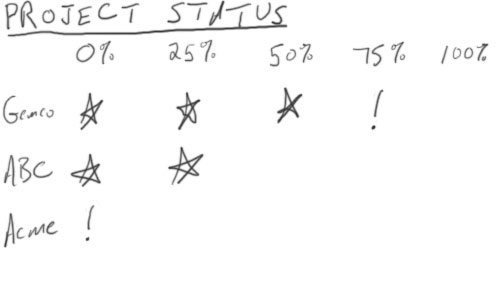A completely nascent idea: are big companies more successful when they are organized as collections of small units, as opposed to bigger, less personal, hard-to-manage large units?
I asked this question while commiserating with a friend whose medium company was swallowed up by their giant competitor last year after a prolonged and contentious aquisition period. What is the future for this smaller business unit? As a thought experiment I conjured up Wal-Mart. While not the poster child of PR these days, they are extremely good at many things. And we could think of them as a collection of many small units, each store being one unit.
And then I looked at the rest of the Fortune 10…
1 Exxon Mobil
2 Wal-Mart Stores
3 General Motors
4 Chevron
5 Ford Motor
6 ConocoPhillips
7 General Electric
8 Citigroup
9 American International Group
10 Intl. Business Machines
Let’s disregard the oil companies since they sell an expensive commodity we’re addicted to. Let’s also disregard the auto companies who have decades of growth on which to coast and aren’t doing well lately. That leaves us with Wal-Mart, GE, Citigroup, AIG, and IBM. Each of these is broken into many smaller units. In fact, in AIG’s case there are so many units working autonomously from the corporate hand they actively compete with one another. These companies seem to go beyond the modern corporation structure to become cluster corporations.



 It’s telling that this BusinessWeek/BCG
It’s telling that this BusinessWeek/BCG 

 Dr. Rudi Webster, a sports psychologist, is striving to improve the relationship between the West Indies cricket board and the players association prior to the 2007 Cricket World Cup to take place there. He’s
Dr. Rudi Webster, a sports psychologist, is striving to improve the relationship between the West Indies cricket board and the players association prior to the 2007 Cricket World Cup to take place there. He’s 

